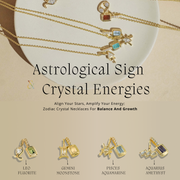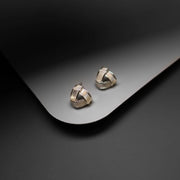What Is Tanzanite?
Tanzanite is a blue-to-violet variety of the mineral zoisite (Ca₂Al₃(SiO₄)₃(OH)), discovered in 1967 in northern Tanzania. It is 1,000 times rarer than diamonds and prized for its trichroic color-changing properties (displaying blue, violet, and burgundy hues from different angles).
Key Geological Characteristics
-
Chemical Composition: Calcium aluminum hydroxy silicate.
-
Hardness: 6.5–7 on the Mohs scale (softer than sapphire; best for pendants and earrings).
-
Crystal System: Orthorhombic (forms in prismatic crystals).
-
Sources: Found only in the Merelani Hills, Tanzania (near Mount Kilimanjaro).

Tanzanite’s Color: The Science Behind Its Beauty
Tanzanite’s mesmerizing color comes from vanadium impurities and heat treatment:
Natural vs. Heat-Treated Tanzanite
| Type | Color Properties | Market Value |
|---|---|---|
| Untreated | Brownish-green (rarely seen in jewelry). | Extremely rare; collector’s item. |
| Heat-Treated | Deep blue-violet (standard in jewelry). | 95% of tanzanite is heated. |
Trichroism: The Triple-Color Effect
-
Blue (when viewed along one axis).
-
Violet (when tilted).
-
Burgundy/Red (rarely seen in some angles).
Note: The finest tanzanite exhibits a saturated "velvet blue" with strong violet flashes.

Tanzanite’s Discovery & Rarity
-
1967: Discovered by Maasai herders and later identified by gemologist Manuel d’Souza.
-
Single Source: Only found in a 4km x 2km mining area in Tanzania.
-
Estimated Lifespan: Mines may be depleted within 20–30 years, increasing its rarity.
Fun Fact: Tiffany & Co. named it "Tanzanite" and popularized it globally in 1968.
Tanzanite Value: Grading & Pricing Factors
1. Color (Most Important Factor)
-
Top Grades: Vivid violet-blue (AAA/AAAA).
-
Commercial Grades: Lighter or grayish tones (A/AA).
2. Clarity
-
Eye-Clean: Highest value (minor inclusions acceptable).
-
Heavily Included: Lower value (visible fractures).
3. Carat Weight
-
Small Stones (1–5 ct): Common in jewelry.
-
Large Stones (10+ ct): Rare; exponentially more valuable.
4. Cut Quality
-
Best Cuts: Oval, cushion, or emerald step-cuts to maximize color.
-
Poor Cuts: May appear washed out or too dark.
Price Range: $200–$1,500 per carat (top-quality stones can exceed $2,000/ct).
Tanzanite Jewelry: Styles & Care
Popular Designs
-
Solitaire Rings: Often set in white gold/platinum to enhance color.
-
Pendant Necklaces: Protects the stone from scratches.
-
Statement Earrings: Showcases trichroism beautifully.
Durability Concerns
-
Avoid Ultrasonic Cleaners: Can cause fractures.
-
Store Separately: Prevent scratches from harder gems.
-
Gentle Cleaning: Use mild soap and a soft brush.

Metaphysical Properties & Symbolism
-
Transformation: Linked to spiritual growth and new beginnings.
-
Intuition: Believed to enhance psychic abilities (third eye chakra).
-
Prosperity: Called the "gemstone of wealth" in some cultures.
Why Tanzanite Is a Collector’s Dream
With its limited supply, mesmerizing color, and increasing rarity, tanzanite is a once-in-a-generation gemstone. Whether as an investment or a statement jewel, it embodies nature’s fleeting beauty.
Explore our Tanzanite Collection for certified, ethically sourced gems.








